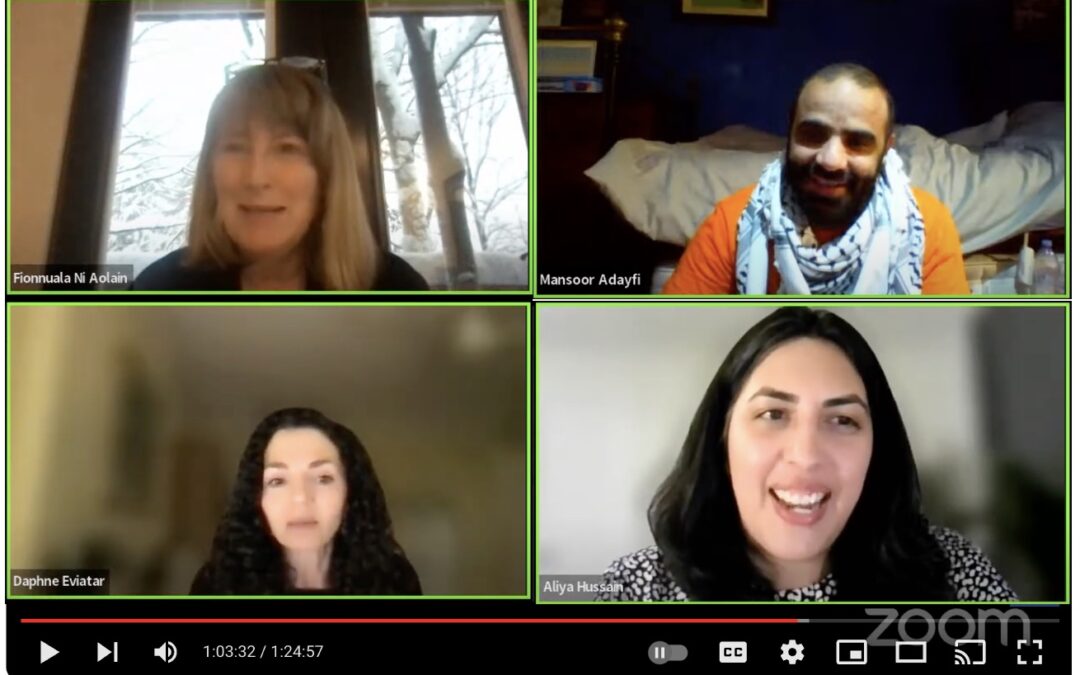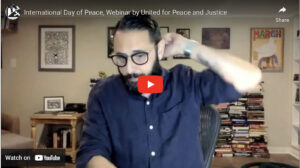The Detention Facility on the Guantanamo Bay Naval Base marked its 22nd anniversary on January 11th, and while the number of detainees has dwindled to 30 there is a growing awareness of the enormity of the on-going damages and human rights violations the 780 Muslim men and boys who were or are imprisoned at Guantanamo face, even after their release. Most egregious has been the continuing failure to transfer the 16 men who have been cleared for release, the overwhelming majority of whom have been held for more than two decades. Theirs is an existence of “unique trauma, anxiety, despair and helplessness” as described by Fionnuala Ní Aoláin, the former UN Special Rapporteur on the Promotion and Protection of Human Rights and Fundamental Freedoms while Countering Terrorism, the first UN official to gain access to Guantanamo and to interview dozens of former detainees. Ms. Ní Aoláin’s report, sent to the Biden Administration last June concluded that the totality of the conditions of confinement at Guantanamo “without doubt, amounts to ongoing cruel, inhuman, and degrading treatment at the Guantánamo Bay detention facility, and may also meet the legal threshold for torture.”
Increasingly, however, activists and human rights advocates are learning of the profound challenges men face after Guantanamo, which can be particularly difficult if one is relocated to a country other than where he was initially from. These men are often unable to find work, they struggle with housing, may have no access to medical care (and many of them have severe health challenges after the torture and hunger strikes that they experienced.) Few former detainees ever obtain passports that grant them freedom of movement. Again, from the UN Special Rapporteur, “For the men who the U.S. government has transferred or resettled, my report documents the despair, challenges, and undisputable harms most continue to face following release. Former detainees need the essential means to live a dignified life.” On the occasion of the 22nd anniversary, Ms. Ní Aoláin emphasized that activism by released detainees now forms the frontline of advocacy for their rights. READ MORE.
No one better embodies this role of detainee activism and advocacy than Mansoor Adayfi, author of Don’t Forget Us Here: Lost and Found at Guantanamo. Mr. Adayfi was one of the lead organizers of the hunger strikes by detainees that captured world attention in 2005, 2008 and 2013. Living in Serbia since 2016, he writes frequently about the situation former detainees now face. Just one example is Saudi engineer Ghassan Abdullah al-Sharbi, who the U.S. repatriated to his home country in March of 20223 and shortly later he disappeared. Others have experienced torture and even execution after being relocated. It’s what former detainees cynically refer to as GITMO 2.0. READ MORE. Mr. Adayfi is also the Outreach Director of the No More Guantanamos Survivors Fund which had pledged to provide limited assistance to former detainees until the U.S. fulfills its responsibilities for reparations and torture rehabilitation.
Mansoor Adayfi and Fionnuala Ní Aoláin were joined by Aliya Hussain, from the Center for Constitutional Rights, and Daphne Eviatar, from Amnesty International—USA, in a powerful webinar “Guantanamo, Where Do We Go From Here?” discussing the long history of the Guantanamo detention facility, the work that remains to finally shutter the facility, and the many issues that must be addressed to provide accountability for the wrongs, harms and violations of law that took place. Watch the webinar here.



